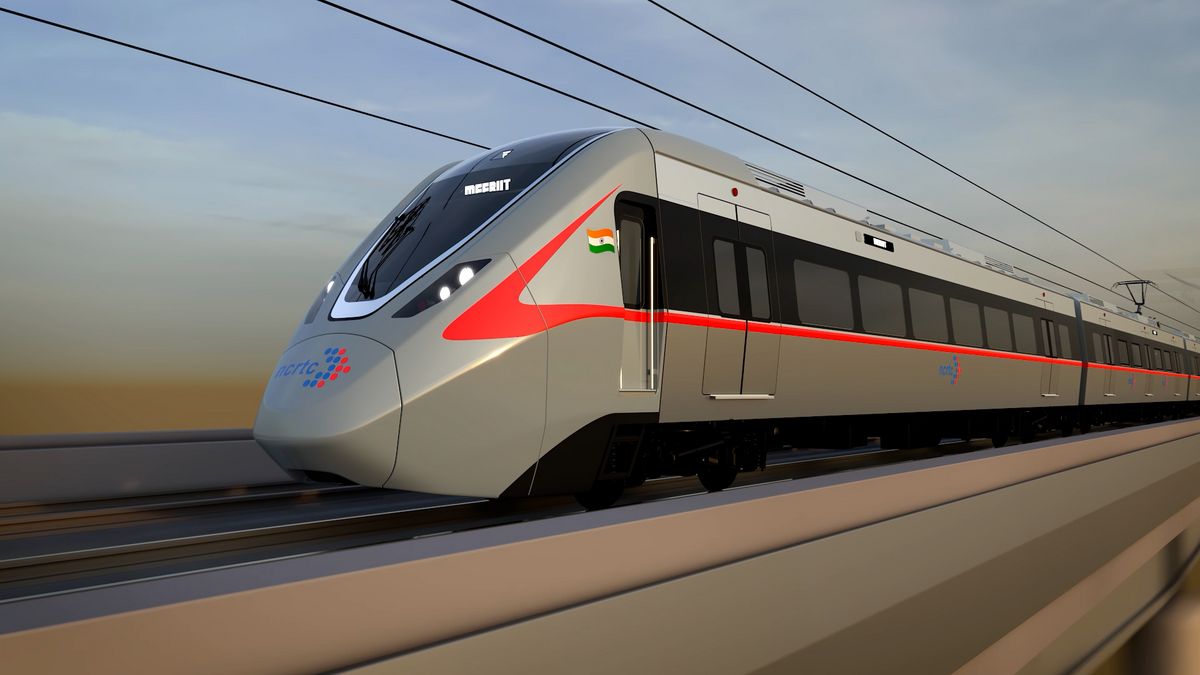Chennai/India: Next year, regional rapid trains will run in India for the first time, capable of speeds of up to 180 kph (112 mph). The trains will run on the completely new 80-kilometre line from Delhi to Meerut, northeast of the capital. TÜV India will play a major role in this: A total of 30 rapid train units (RRTS) and 10 local trains (MRTS) will be put on the rails. The first of these trains have now been handed over after being meticulously tested by a team of railway specialists from TÜV India. Deutsche Bahn International Operations is taking over operation and maintenance for this first Regional Rapid Transit System in India.
For the team led by project manager Jayesh Patel from TÜV India, the work is particularly motivating: The railway specialists had often dealt with functional safety in railway vehicles: "Technically, this is the same task," says Jayesh Patel, "but this is a prestige railway project in India." It is the first time that TÜV India carried out an Independent Safety Assessment (ISA) for such regional rapid trains, which was therefore a challenging task. The team responsible for the ISA has received an ISO 17065 accreditation. This standard regulates the requirements for testing bodies that certify products, for example.
The focus of the ISA at the Duhai depot northeast of the capital is the functional safety of the trains. "No electronic system may interfere with another during operation; clarifying this is the main task of our tests," Mr Patel explains the task. So, among other areas, the team deals with train control system (TCMS), emergency brakes, hardware, software and door control, fire protection and the interface between signalling and vehicle.
The first train units have now been handed over to the National Capital Region Transport Corporation (NCRTC). The joint venture between the Government of Indian and several neighbouring states has been entrusted with the implementation of the RRTS in the entire capital region. Balanced and sustainable urban development through better transport connectivity is the objective of the NCRTC.
The 30 RRTS consist of six coaches each, the 10 MRTS of three coaches each. They are very modern, not only by Indian standards: There are sockets for mobile devices, automatic control of ambient lighting, generously dimensioned heating, ventilation and air-conditioning systems as well as camera surveillance in the train. And of course padded seats, enough standing room, luggage racks.
Project manager Jayesh Patel is already looking forward to his first ride on the new express train, for which he will travel from Chennai in the south-east of the country to Delhi, 2,000 kilometres away. "It makes me proud to be involved in this prestigious project."
About TÜV NORD GROUP
Since our foundation more than 150 years ago, we have been the global byword for security and trust. As a knowledge-based company, we have the digital future firmly in mind. With specialists ranging from engineers and IT security professionals to professionals for the mobility of tomorrow, we use our expertise in over 100 countries to ensure that our customers will be even more successful in the networked world.
